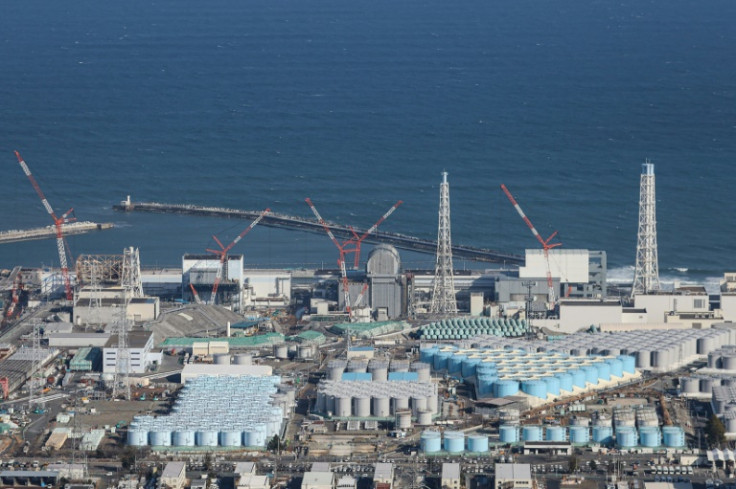China Slams 'Extremely Selfish' Japan In Fukushima Water Ocean Discharge Plan

KEY POINTS
- Japan is "putting its selfish interests" above that of the entire humanity, Wang said
- The plan poses massive risks to the marine environment, China's ambassador to Japan previously noted
- Japan is looking to discharge around 500,000 liters of the filtered water daily
Beijing has expressed firm opposition to Japan's announcement that it will start releasing wastewater from the Fukushima nuclear plant into the ocean Thursday, saying it is an irresponsible move. Some South Koreans and Japanese have taken to the streets to protest the discharge plan.
"This is extremely selfish and irresponsible, as the discharge will spread the risks of nuclear contamination to the rest of the world, and by doing so, Japan is putting its selfish interests above the long-term wellbeing of the entire humanity," Chinese foreign ministry spokesperson Wang Wenbin said during a press briefing Tuesday.
Wang reiterated that Japan's plan has been repeatedly questioned over the past two years. China, along with other stakeholders, has explained how the plan is "unjustified, unreasonable and unnecessary," he added.
He also accused Tokyo of making "unfounded accusations" against other nations that expressed legitimate concerns about the Fukushima wastewater plan but did not go into detail.
China is urging Japan to cancel its ocean discharge plan and communicate with neighboring countries on an internationally-accepted discharge process that will not harm the environment.
This is not the first time China has publicly lambasted Japan's plan. Last month, the Chinese Embassy in Japan said the move poses massive risks to the global marine environment and humans and violates international laws.
Wu Jianghao, Chinese ambassador to Japan, said the Japanese government should suspend its plan for now and allow other opposing countries to conduct independent sampling or analysis of the Fukushima wastewater to ensure that all concerns are addressed and the discharge is carried out responsibly.
Beijing said it has filed a demarche — a formal diplomatic representation of a government's opposition or views — regarding the matter.
Japanese Prime Minister Fumio Kishida announced that Japan will start releasing Fukushima wastewater, which it says has been cleaned and filtered, into the ocean Thursday if weather and sea conditions allow it. The plan is to release 500,000 liters of Fukushima water per day off of Japan's northeast coast.
The Fukushima-Daiichi nuclear plant was struck by a massive earthquake and tsunami in March 2011 that killed an estimated 18,000 people. The Tokyo Electric Power Company (TEPCO) has worked to dilute and filter water in the area to purge it from radioactive substances. Tritium, a weak radioactive isotope, has not been filtered out.
There have been expert concerns about the possible impacts of the remaining tritium on marine life. Some said tritium may accumulate in fish and marine organisms, possibly affecting the food web.
"We have confirmed that the tritium concentrations in the bodies of marine organisms reach equilibrium after a certain period of time and do not exceed the concentrations in the living environment," a TEPCO spokesperson said about the matter, according to Nature.
The South Korean government initially condemned Japan's decision when it was first announced in 2021. However, the government under President Yoon Suk Yeol said it finds no issues with the plan's scientific or technical aspects. The South Korean public seems to think otherwise. In the capital of Seoul, hundreds of activists staged protests last week to oppose the discharge plan.
Even in Japan, activists also conducted demonstrations, with some gathering outside the official residence of PM Kishida.
There are approximately 1 million metric tons of treated radioactive water that will be released from the wrecked Fukushima plant. Japan's confidence in the water being safe is backed by a report from the International Atomic Energy Agency (IAEA) that states the plan is consistent with international safety standards.
© Copyright IBTimes 2024. All rights reserved.






















